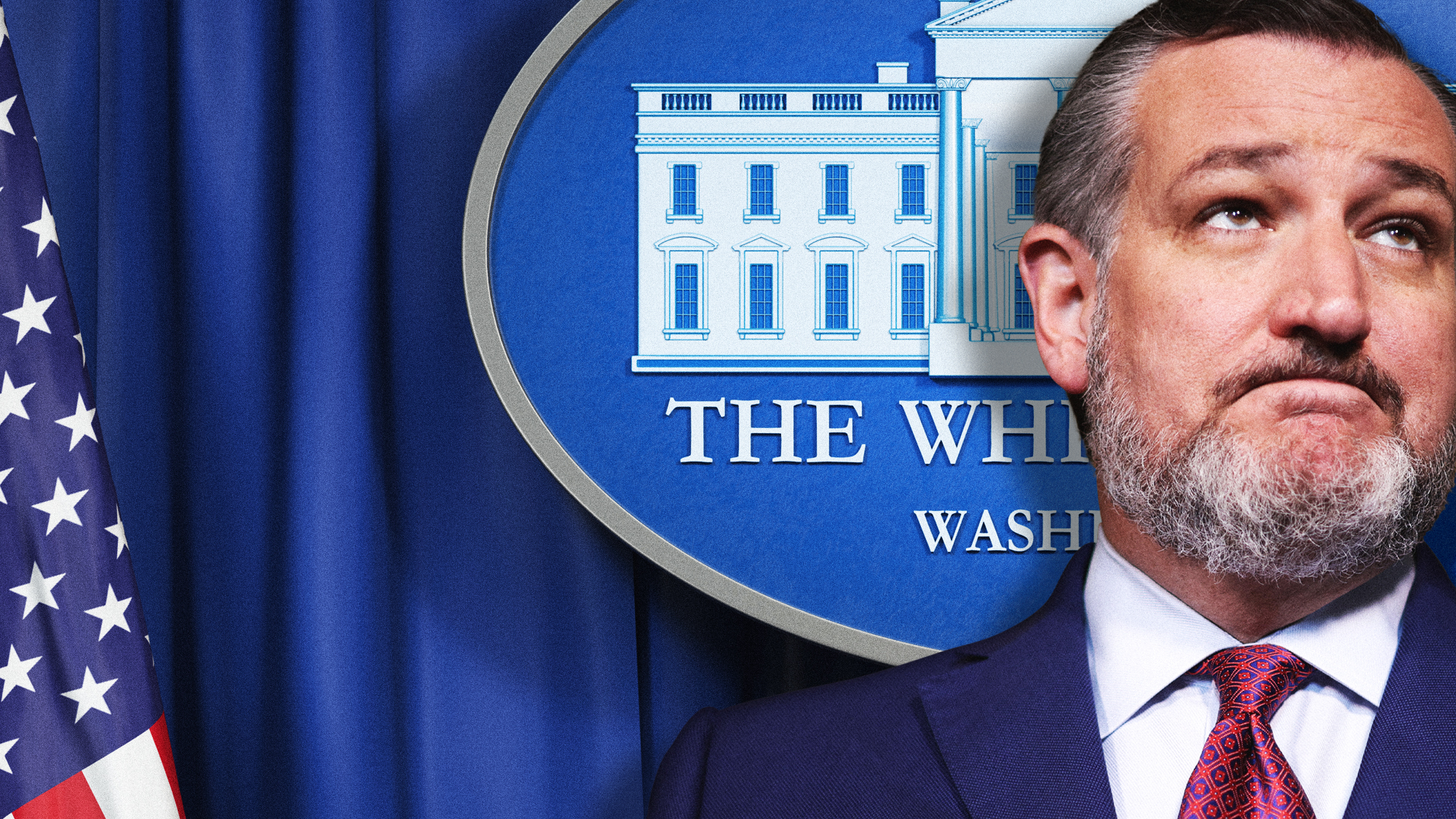How did Beto O'Rourke lose to the most hated politician in America?
Everybody loathes Ted Cruz. So how did he win?


A free daily email with the biggest news stories of the day – and the best features from TheWeek.com
You are now subscribed
Your newsletter sign-up was successful
With all due respect to the legions of Betomaniacs whose world-historic dejection I almost feel guilty about mocking, it is worth pointing out that Republican Sen. Ted Cruz did not win re-election in Texas this week. His Democratic opponent just lost.
There is no other way to interpret the result of Tuesday's midterm election in the Lone Star State, where Gov. Greg Abbott, Cruz's fellow conservative Republican, was re-elected by a 13-point margin. Cruz's own majority on the same ballot was far narrower — less than 3 percentage points, an astonishing drop from the ironclad 16 percent with which he won his Senate seat in 2012. Vote totals suggest that 26,000 more votes were cast for governor than for senator.
What happened here? Did a lot of write-ins for Grandma just not get counted? Did people leave the Senate box blank? Were some conservatives voting for Beto O'Rourke out of spite? Whatever the ultimate explanation, it is clear that Texans, Republicans included, were very reluctant to vote for Cruz.
The Week
Escape your echo chamber. Get the facts behind the news, plus analysis from multiple perspectives.

Sign up for The Week's Free Newsletters
From our morning news briefing to a weekly Good News Newsletter, get the best of The Week delivered directly to your inbox.
From our morning news briefing to a weekly Good News Newsletter, get the best of The Week delivered directly to your inbox.
Cruz is probably the most loathed Republican in the country, someone beside whom even President Trump comes off as a lovable geriatric fusspot. That Democrats hate Cruz goes without saying. But he is also almost universally despised by his colleagues in the Senate and by the leadership of his party. John Boehner, the former Republican speaker of the House who was forced to shut down the government in 2013 thanks to Cruz's antics, has called him a "jackass." The late John McCain referred to Cruz as "crazy" and a "wacko bird." His fellow Texan President George W. Bush, under whom Cruz served as an adviser, has said "I just don't like the guy." Andrew Ferguson, who profiled him for a 2013 cover story in The Weekly Standard, was driven to the brink of suicide listening to Cruz respond to his questions by repeating his stump speech verbatim: "I made a quick calculation of how many vertebrae I would damage if I slipped the lock, opened the [car] door, and did a tuck and roll onto the passing pavement. The answer was: too many."
It is not hard to see why he inspires these feelings. Cruz is one of those extraordinary figures in our political life who manages to alienate even his most hardcore ideological allies with the sheer nastiness of his character. As his Princeton roommate Craig Mazin once put it: "Ted Cruz is a nightmare of a human being. I have plenty of problems with his politics but, truthfully, his personality is so awful that 99 percent of why I hate him is just his personality. If he agreed with me on every issue I would hate him only one percent less."
Everyone understands that Mitch McConnell doesn't believe in anything except winning, which is why Cocaine Mitch enjoys his deserved reputation as an amiable cynic. But Cruz wants us to accept that he is a true believer, the principled conservative par excellence, the resolute defender of the Constitution (the text of which he committed to memory as a child), and carries the routine further than almost anyone else would dare. People like this are tolerable, too, after a fashion. Nobody hates Ron Paul. Cruz's problem is that he insists on dressing up his McConnell-like ambitions in a tricorn hat and Margaret Thatcher quotes.
So why didn't O'Rourke beat Cruz? Because this race was run in Texas, and Texas is a red state.
A free daily email with the biggest news stories of the day – and the best features from TheWeek.com
This is why Democrats should not feel elated by their last moral victory. The fact that O'Rourke came within two and a half points of beating Cruz tells us very little about the likelihood of Texas going blue — or at least purple — in the foreseeable future and everything about the sheer unlikeability of its junior senator. A narrow loss for Democrats is, in its way, the most horrifying outcome imaginable, proof positive that even $70 million arrayed against the least appealing man in the nation's most hated political body is no match for the brute facts of political geography.
Matthew Walther is a national correspondent at The Week. His work has also appeared in First Things, The Spectator of London, The Catholic Herald, National Review, and other publications. He is currently writing a biography of the Rev. Montague Summers. He is also a Robert Novak Journalism Fellow.
-
 Antonia Romeo and Whitehall’s women problem
Antonia Romeo and Whitehall’s women problemThe Explainer Before her appointment as cabinet secretary, commentators said hostile briefings and vetting concerns were evidence of ‘sexist, misogynistic culture’ in No. 10
-
 Local elections 2026: where are they and who is expected to win?
Local elections 2026: where are they and who is expected to win?The Explainer Labour is braced for heavy losses and U-turn on postponing some council elections hasn’t helped the party’s prospects
-
 6 of the world’s most accessible destinations
6 of the world’s most accessible destinationsThe Week Recommends Experience all of Berlin, Singapore and Sydney
-
 The billionaires’ wealth tax: a catastrophe for California?
The billionaires’ wealth tax: a catastrophe for California?Talking Point Peter Thiel and Larry Page preparing to change state residency
-
 Bari Weiss’ ‘60 Minutes’ scandal is about more than one report
Bari Weiss’ ‘60 Minutes’ scandal is about more than one reportIN THE SPOTLIGHT By blocking an approved segment on a controversial prison holding US deportees in El Salvador, the editor-in-chief of CBS News has become the main story
-
 What Nick Fuentes and the Groypers want
What Nick Fuentes and the Groypers wantThe Explainer White supremacism has a new face in the US: a clean-cut 27-year-old with a vast social media following
-
 Ted Cruz teases big 2028 moves
Ted Cruz teases big 2028 movesIN THE SPOTLIGHT The Texas Republican is playing his cards close to his chest, even as others in Washington start looking for hints about the arch-conservative’s future
-
 Has Zohran Mamdani shown the Democrats how to win again?
Has Zohran Mamdani shown the Democrats how to win again?Today’s Big Question New York City mayoral election touted as victory for left-wing populists but moderate centrist wins elsewhere present more complex path for Democratic Party
-
 Millions turn out for anti-Trump ‘No Kings’ rallies
Millions turn out for anti-Trump ‘No Kings’ ralliesSpeed Read An estimated 7 million people participated, 2 million more than at the first ‘No Kings’ protest in June
-
 Ghislaine Maxwell: angling for a Trump pardon
Ghislaine Maxwell: angling for a Trump pardonTalking Point Convicted sex trafficker's testimony could shed new light on president's links to Jeffrey Epstein
-
 The last words and final moments of 40 presidents
The last words and final moments of 40 presidentsThe Explainer Some are eloquent quotes worthy of the holders of the highest office in the nation, and others... aren't
